|
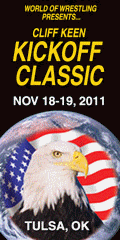



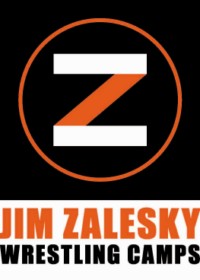
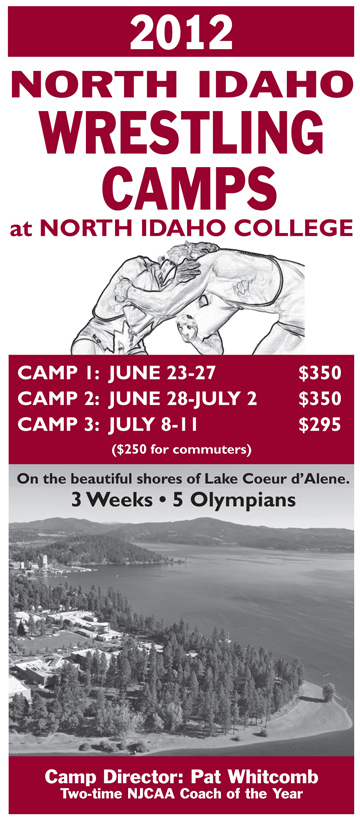
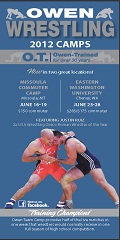
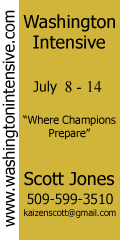

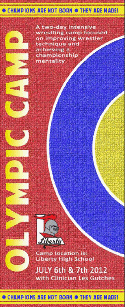
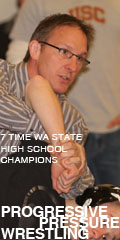
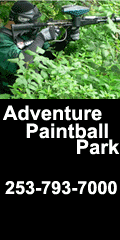

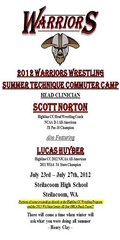



Rotated ads 4/4/12 top to bottom

| |
Q & A about high rules
Statement:
Specifics for Blood time
vs Clean up
Posted by By the Book on
11/26/2006, 8:56 pm, in reply to "Re:
Bleeding Time - Clarification"
| And just to be really clear, here
are some examples of what is considered blood time and what is considered
clean up: Blood time (blood
clock is running)
(a) Blood is flowing and visible
(b) The cut has been covered but the trainer is still wrapping tape/bandages
(c) The wrestler is squeezing their nostrils with their head tilted back to
stop the bloody nose
(d) The blood was wiped away from the abrasion but has started seeping out
again
Clean up (blood clock has already been stopped)
Here's a good way for trainers,
coaches, officials and wrestlers to think about clean up time:
Imagine we didn't care about health
factors involved with one person's blood contacting their opponent's body.
In that hypothetical world, we wouldn't worry about cleaning up the blood
that has already been shed. Thus, "Ready to Wrestle" means that the
following are all true:
- No new blood is flowing into the
open;
- The injured wrestler can walk out onto the mat without anyone else
accompanying them;
- The injured wrestler is legally equipped;
- The injured wrestler can stand on their own two feet and use both
hands/arms.
If all of that is true, then we can
stop the blood clock and do any clean up that is necessary. This way of
thinking about it will eliminate any confusion coaches, trainers or
participants might have when the official responds to their request to stop
the blood clock. If the official says "No, keep the clock running", it's
because some of the criteria above have not been met. |
Unsupported
interpretation of blood time presented at Nov. 11 clinic
Posted by By the Book on
11/13/2006, 10:16 am
| For those that attended the
statewide officials clinic on Nov. 11 at Jackson HS:
The clinician presented an
interpretation on blood time that ran completely counter to:
(a) What officials in the state of
Washington have consistently called
(b) What the NFHS Case Manual has provided historically
(c) What high school officials from across the USA are doing
To see a detailed discussion of this
issue, I recommend going to the NFHS discussion board and reading what top
notch officials from around the country say about this interpretation. Here
is a link to that discussion thread:
http://www.nfhs.org/cgi-bin/ultimatebb.cgi?ubb=get_topic;f=17;t=000164
I'll summarize the controversy, and
also provide what I believe is the consistent way we handle this in both
Washington and everywhere else in the USA.
Situation: In Period 1, RED wrestler
is injured due to an illegal act (e.g., unnecessary roughness for hard cross
face) and his nose bleeds. Offical stops the match, penalizes GREEN and
starts the blood clock. RED uses 4:50 seconds of blood time, but controls
the bleeding and is ready to wrestle. In Period 3, RED wrestler's nose plug
comes out on its own (no illegal acts involved). The official stops the
match and starts the blood clock. 10 seconds later, the blood has not been
controlled and 5:00 of cumulative blood time has been exhausted by RED.
Ruling: GREEN wins by default. Once
RED made the decision to continue wrestling after the initial injury in
Period 1, the cause of that bleeding no longer matters. Thus, just because
an illegal act caused the initial bleeding does not provide any special
consideration once the blood clock stops and RED says he is ready to wrestle
in Period 1.
Controversy: The clinician, who is
very experienced and has worked at the highest levels of high school and
college for decades, represented an interpretation that runs completely
counter to the ruling above. From the NFHS forum, I can find no official
from around the country that agrees with the clinician. Casebook 8.2.7
Situation F supports the ruling above and contradicts what the clinician
presented. I think the clinician lost some credibility in my mind (and
probably in the minds of other officials) when he admitted that he doesn't
really read the Case Manual.
At any rate, I feel that officials
in Washington are consistent with the ruling listed above and should
continue to rule that way. I do think it is important to raise our voice in
this state to ensure that some officials didn't walk away from the clinic
with the wrong idea on this matter. |
Re: by the book....your
opinion
Posted by By the Book on
11/13/2006, 11:55 am, in reply to "by
the book....your opinion"
| I agree with your points regarding
the lack of college wrestling in our state and how that can influence how
our referees might officiate. I think the goal for officials, whether they
are in New York, Iowa or Washington, should be to provide consistent
interpretations and applications of the rules. Thus, if we have situations
where referees in states with college wrestling are "calling it differently"
than states without college influence, then we should strive to be more
uniform. Maybe one might
consider the possibility that we "raise the level" in some places. On the
other hand, we also need to eliminate variations in application or
interpretation that are not supported by the rule book and official case
manual. Eliminating variations means we either all call it the same way OR
that we might need to revise the official publications accordingly.
This clinic we had on Nov. 11 was an
excellent step our state took in trying to get more consistency across the
state. By bringing in a nationally renowned clinician, it was also
attempting to try and be more consistent with the rest of the country. The
caution we need to have is that in this specific case, the clinician
presented something that our publications do not support. So, either he (and
people like him) need to get the NFHS to revise the Rule Book and Case
Manual to support his interpretation OR he needs to go back to his books as
the basis for his ruling.
It is impossible to eliminate all
variation in how something might get interpreted (e.g., when is something
considered stalling), but we can make those variations much smaller through
interactions like this clinic, or instructional materials from the NCAA or
NFHS, or through online forums like the NFHS site.
In respect to your question about my
personal opinion, here's my answer - personally, I prefer that we work
together as officials, coaches, administrators, etc. to advance the sport to
the higher levels. If there are things we need to do to not only prepare
kids to wrestle at the next level, but also ensure that the competitions are
conducted in the best spirit of the sport, then I'm an advocate of more
dialogue and training across the country. |
Re: by the book....your
opinion
Posted by rasslinref on 11/14/2006, 9:21 am, in reply to "by
the book....your opinion"
| I sat in the clinic last Saturday
looking for Mr. Vombaur..... He has been a strong advocate for a statewide
clinic for a long time. (and rightfully so) The clinic was held and not only
was he not there, neither were any (or very many) coaches. What a shame!
I thought it was very interesting to
hear the clinician's take on stalling. From his own mouth, he calls stalling
as much or more than Washington officials. And he is HARD on the top man if
doesn't come out to the side and TRY to turn the bottom man. "Grinding" just
doesn't pack it. And he does NOT believe in calling stalemate before the
stall call. He (a high ranking NCAA official from the midwest) is death on
stalling in the neutral position. Just watching an NCAA tape from the
finals, we saw him DQ a senior wrestler in the finals for straggling in from
out of bounds. All I could say was "Wow"!! Contrary to Mr. Vombaur's opinion
of how only Washington officials call too much stalling, this clinician
calls it as much or more than we do.
About bleeding.... I believe his
presentation was incorrect. I talked to him personally after the clinic, and
had a hard time with his interpretation. He said that if an illegal
crossface causes wrestler A to start bleeding in the first period and then
in the second period an inadvertent butt causes a cut on the head, and then
in the third period, the nosebleed starts up again and they run out of blood
time, wrestler A wins by default over B. And that is even though a
considerable amount of time was used for the head cut. I openly disagreed
with him. I have written a scenario and sent it to the state for a WIAA
interpretation. Jim Meyerhoff is working on it at this time.
I was disappointed in the clinic in
that coaches were not present. We are all in this together and we all needed
to be there. And I was looking forward to meeting "the real Vombaur".
|
Resslin ref
Posted by The real vombaur on 11/14/2006, 12:11 pm, in reply to "Re:
by the book....your opinion"
| I understand your position on the
subject,...it is obvious your mind is made up, regardless of what you think
you hear, or see, or what someone says.
My original post was specifically
addressed to By the Book.
I value his opinion, information and
the dialogue he brings on this subject.
I am open minded, I have changed my
positions on a number of subjects over the years, but the information and
the convincing has to come from a source I respect.
Not that it should matter to you,
but in evaluating your many posts on this subject......you do not make
"Respected" grade. |
Re: Resslin ref
Posted by rasslinref on 11/14/2006, 3:09 pm, in reply to "Resslin
ref"
| Ouch!! That hurt. I was being
honest when I stated that I was looking forward to meeting you. I was in
hopes you would be there. I've read your posts as well and to say you are
open minded on the subject, might be questionable. We both have some strong
feelings on the issue. |
In retrospect....out of
courtesy
Posted by The real vombaur on 11/14/2006, 12:55 pm, in reply to "Resslin
ref"
| I should address you post.
I have never said or advocated riding
the hips and just staying in that position with a leg ride.
What I have advocated is letting
kids early on "work and learn top position moves" without interferance from
whistle happy officials that are on the whistle if he cannot turn the guy
right off the move.
Working top position moves is just
that...working for a turn, and if possible punishing the bottom wrestler in
doing it.
Your statement that no stalemate
before a stall call is just ridiculous.
I have seen officals many times
communicate to wrestlers to work out of a stalemated mat position. If he
sees one wrestler not working out of a position on a previous stalemate
call, but just stalling in that position...he calls a stall after stalemate
calls.
Of course if a kid sticks a leg
in...rides the hips and jsut lays there...stalling.
That is differant than stalling call
right off the get go on a top man that is working to turn a guy.
That is where washington officials
need major improvement.
I have never made any comments one
way or the other on stalling from neutral.....total judgement call.
Just what do you think grinding is?
Grinding to me is punishment from
the top man to the bottom man...done over a period of time to break his
spirit to wrestle and compete from the bottom position.
You can NOT do it just from staying
on the hips and riding, but you can punish and ride if you change positions
in trying to turn the wrestle....but you do not have to turn him.
You see it all the time in NCAA, and
in other states outside of washington high school wrestling.
Saw it last year from a couple of
national ranked california high school teams.
I was not looking for a fight with
officials....but I will say it again.
The way Washington has called top
position stalling for years, discourages the young wrestlers coming up from
learning top skills and the bottom escape skills he needs to learn when he
faces top position grinders that "Beat them up"
from the top.
Washington officials like yourself
refuse to open you eyes up to this fact....so no need to keep addressing it.
That is my opinion, you and others
have yours. |
Re: In retrospect....out
of courtesy
Posted by rasslinref on 11/14/2006, 3:15 pm, in reply to "In
retrospect....out of courtesy"
| Thanks for the reply to my post. I
do wish you had been there to hear this NCAA official. It was him and not me
that said to call stalling and not a stalemate. My position has always been
to call at least one stalemate in riding situations before stalling. And not
only call stalemate, but I always tell the top wrestler what I expect him to
do to keep from getting a stalling. I was surprised that this official from
the midwest advocated calling stalling even more than we do. I was NOT
expecting that from him. I
love watching kids work from the top, but they will never turn the bottom
guy unless they go out to the side. When the top wrestler stays parallel, he
is NOT working for a pin. And the ultimate goal of wrestling is a PIN.
|
Bleeding Time -
Clarification
Posted by Gregg Ortega on
11/26/2006, 11:20 am
| There has been much discussion on
bleeding time. I discussed this with our Clinician Jim Rimerez, and also
Dave Nevins and Bob Whitaker of the National Rules Committee (Look in your
rule book their smiling faces are in the front of the book.)
If a wrestler starts bleeding in the
first round because of an illegall hold or unecessary roughness the bleeding
time continues up till cleanup begins. If he goes over 5 minutes the
bleeding wrestler wins. Once the bleeding is stopped the match resumes, if
the bleeding starts again and it goes past the 5 minutes the bleeding
wrestler loses. |
Re: Bleeding Time -
Clarification
Posted by By the Book on
11/26/2006, 12:50 pm, in reply to "Bleeding
Time - Clarification"
| Gregg - Just to be crystal clear,
please confirm the validity of the following statements so everyone is
consistent: 1) The clinician
at Jackson HS provided an incorrect interpretation regarding blood time and
who actually wins by default when an illegal hold caused the initial blood
time out, but no illegal action caused the final blood time out.
2) The principle at work is this -
the awarding of a default is based solely on the event which caused the last
blood time out that resulted in the bleeding wrestler exceeding the 5:00
blood time limit. If the event which caused the final blood time out was an
illegal hold, unecessary roughness or unsportsmanlike conduct (but a
technical violation IS NOT included on that list of events), then the
bleeding wrestler wins by default. Any other event which caused the final
blood time out would result in the non-bleeding wrestler winning by default.
3)Extreme scenario to illustrate the
concept:
Wrestler A begins bleeding because
he has his face raked by Wrestler B. The official calls an illegal hold on
Wrestler B and starts the blood clock. Wrestler A uses 4:59 of time before
finally controlling the blood and the official stops the blood clock.
Wrestler A completes clean up and declares he is ready to wrestle. The
official restarts the match. Wrestler A initiates a takedown, Wrestler B
counters with a legal cross-face, and Wrestler A's bandages come off and
blood begins flowing. The official stops the match, starts the blood clock,
and the 5:00 time limit is exceeded. RULING: Wrestler B wins by default.
4) Alternate extreme scenario:
Wrestler A shoots a takedown and
bangs his nose hard against Wrestler B's knee. No illegal action occured,
yet Wrestler A begins bleeding profusely from the nose. The official stops
the match and starts the blood time out. Wrestler A uses 4:59 of blood time
and declares he is ready to wrestle. The official restarts the match.
Wrestler A shoots another takedown and Wrestler B applies a cross face with
unecessary roughness, causing the plugs to come out of Wrestler A's nose and
blood begins to flow. The official stops the match, penalizes Wrestler B for
unecessary roughness, and starts the blood clock. The 5:00 blood time limit
is exceeded. RULING: Wrestler A wins by default.
5) Once a wrestler declares he is
ready to wrestle after a blood time out caused by an illegal hold,
unecessary roughness or unsportsmanlike conduct, then the original cause of
the bleeding has ZERO impact on any subsequent rulings the rest of the
match. |
Question:
Changes in questioning
officials.....officials meeting/clinic on the 4th?
Posted by Cucumber on 11/23/2006,
7:41 am
| Please enlighten me.....
I heard of some type of officials
clinic, or perhaps a meeting where the public could attend regarding
officiating this upcoming season for HS wrestling in Washington State. This
meeting/get-together was held on either Saturday or Sunday, November 11th or
12th, somewhere up North of Seattle. The only reason I heard of this meeting
is because a close friend of mine attended the meeting while some of the
boys were wrestling in PJ's USA tourney in Anacortes.
My friend explained to me, that after discussing the subject of questioning
referees during the course of a match, it was decided that, should a coach
approach the table to discuss absolutely anything EXCEPT for a possible
discrepancy on the score, that they would be immediately be ejected for the
rest of the event, as well as the event the following weekend. This
suspension not only includes the famous "questioning of judgement", but also
the occasion where a referee may simply not understand (or flat-out not
know) the rules and the coach brings out the rule book with photos to verify
that a particular hold or move is legal. It was further explained to me that
the only time questioning the official would be permitted would be after the
completion of the match, when the results would already be final and
unchangeable.
If this is not a misunderstanding by
either myself or those who attended this clinic/meeting, what gives? So much
for accountability on the part of officiating in our state! I would not be
surprised in the least in this decision.... particularly for Washington,
when pressured to catch up to the level of the midwest and eastern states,
to simply force those who oppose to shut up....period....or else.
If I am mistaken on this topic, or
if this is now old news, please forgive me as I've been out of the wrestling
world loop for most of the summer & fall due to working commitments. I also
wish not to start rebel-rousing or starting unfounded BS, but simply want
some input from those who may have heard some info on this.....
Thanks,
Don Maycumber |
Answer:
You heard wrong
Posted by By the Book on
11/24/2006, 4:27 pm, in reply to "Changes
in questioning officials.....officials meeting/clinic on the 4th?"
| Lots of misinformation you were
given regarding the statewide officials clinic on Nov. 11 at Jackson High
School. So, let me clarify the rule and procedure that should be used when a
coach has a question for an official:
By rule, a coach may request a
conference with an official FOR ANY REASON IN THE WORLD. The coach can
request the conference to seek overturning of a rule application, to
question the judgment of the official, to comment on the weather, or
whatever happens to be on the coach's mind. Also by rule, there are only 2
things that can happen as a result of that coach/referee conference:
1. The official will make a
correction OR
2. The head coach will be warned/penalized for Coach Misconduct.
The first incident of Coach
Misconduct results in a warning against the Head Coach.
The second incident of Coach
Misconduct results in deduction of 1 Team Point.
The third incident of Coach
Misconduct results in ejection of the Head Coach for the remainder of the
day and deduction of another 2 Team Points.
Here are the recommended mechanics:
If a coach would like to discuss
something with the referee, they should get the attention of the official
when the match is stopped (e.g., beteween periods, after an out of bounds,
etc.). The official should confirm the intent of the coach by asking, "Would
you like to have a conference?" If the coach says "No", then the official
should restart the match immediately. If the coach says "Yes", then the
official should instruct the wrestlers to remain in the 10 foot circle, and
the coach and referee should meet directly in front of the scorer's table.
The official should listen to what
the coach is asking, BEFORE the official says anything. This allows the
coach to clarify their request so the official can respond correctly to the
matter that is being raised. Once the official has determined what the coach
is asking for, then the official will rule accordingly. In that conference,
the following will result in a Coach Misconduct:
- Questioning the judgment of the
official;
- Asking simply for an explanation of a correctly applied rule;
- Any other discussion that does not result in the official making a
correction (e.g., reversing a call, correcting the score or clock, etc.).
Remember, ANY conference requested
that results in Coach Misconduct goes against the HEAD COACH. This is true
even if the assistant coach asked for the conference or the
non-participating wrestler sitting in the coach chair at the corner of the
mat in a tournament made the request. The intent of this rule is to
eliminate needless delays in the conduct of matches. Keep in mind that when
we have these conferences, neither wrestler is initiating any scoring
manuevers and they are resting/getting cold. Thus, we (officials and
coaches) need to adhere to this rule for the benefit of the wrestlers and
the sport.
And the rule is in place to give the
coach a legitimate avenue to raise something to the attention of the referee
- even if it is simply to question the official's judgment. If the coach
felt the situation was serious enough, I'd recommend they have a conference
to voice their concerns and accept the warning or penalty for Coach
Misconduct. For example, if the coach felt the referee was letting certain
holds go too far without being stopped for potentially dangerous or illegal
holds, then it would certainly make an impression on that referee if the
coach expressed their concern during a conference. So, the conference is an
important tool for coaches to use at times. And officials should not
pre-empt the request - they should simply grant the conference and rule
accordingly AFTER the conference occurs.
Additionally, Unsportsmanlike
Conduct is a separate and distinct infraction. Thus, if the coach, during a
conference, acts in a way that is unsportsmanlike, then the official will
penalize with an Unsportsmanlike Conduct penalty against the coach who
committed the act (may not be the Head Coach necessarily). The ruling for
Coach Misconduct would be made IN ADDITION to any potential ruling for
Unsportsmanlike Conduct. |
Question:
Re: Thanks for the
clarification
Posted by dkrz on 11/25/2006, 4:22 am, in
reply to "Thanks
for the clarification"
| I have a question regarding coaches
talking to their wrestlers, when referee needs to go to table, blood time or
the other wrestler is taking an injury time. I wanted to talk my kid when
the referee had to go to the table to check with the table help. But the
referee said the wrestlers had to stay in the ten foot circle. What gives?
when can I coach a kid when the match is interrupted for some reason? |
Answer:
Coaching during a
time out
Posted by By the Book on
11/25/2006, 6:52 am, in reply to "Re:
Thanks for the clarification"
| It depends on what type of time out
we have taken. During injury
or blood time, wrestlers can be with their coaches (both injured and
non-injured competitors) and coaching can occur.
During an official's time out (e.g.,
to check with the table, to conduct a coach/official conference, to allow a
wrestler to adjust his equipment, etc.), then the wrestlers should be
instructed by the referee to remain in the 10 foot circle. In these cases,
there should be no coaching. The stoppage was initiated by the official and
we should not let individual competitors gain an advantage in those
situations. For example, if the official is having a conference with one
coach, it wouldn't be fair if the opposing coach was giving instructions to
their wrestler. |
|















